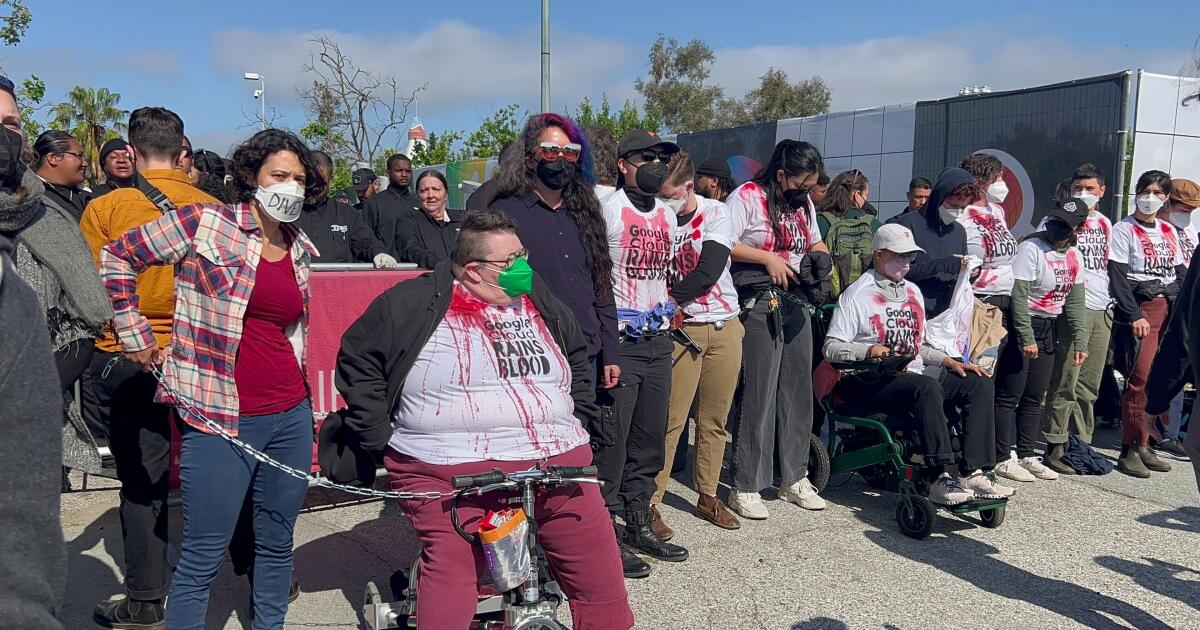Pennsylvania
Outdoor garden centers popping up at Lidl stores in Delaware, Pennsylvania and New Jersey

Retail projects and restaurant openings to watch in 2024
The major retail projects Delaware Online/The News Journal is monitoring in 2024.
Lidl stores in Delaware, Pennsylvania, New Jersey and New York will offer a little something new this spring: outdoor garden centers.
Ever since the boring, broken-supply chain days of the pandemic, there’s been a gardening boom in the United States. Starting in 2022, German-owned discount grocer Lidl has been looking to get in on the game.
The chain, which boasts 170 stores along the East Coast, piloted an outdoor garden store in New York’s Long Island beginning two years ago, in partnership with a century-old local grower named Gabrielsen Farms.
This year, Lidl expanded this concept with outdoor garden stores in select locations, spanning 76 stores across the eastern seaboard.
As of Wednesday, April 24, a number of Lidl stores in Delaware, New Jersey and Pennsylvania will boast outdoor pop-up garden centers in their parking lots. This will include both of Lidl’s stores in Delaware, in Dover at 150 Dupont Highway and in Middletown at 359 Auto Park Drive. (It will not, however, include the forthcoming Bear store, which has yet to set an opening date.) The Lidl garden centers will remain open until May 28 and will feature a variety of flowers, plants, soil, hanging baskets, planters and other gardening accessories, according to company spokespeople.
“We are excited to bring the Lidl Garden Center concept to even more customers this year. At Lidl, we are relentlessly focused on quality and freshness at low prices and our Garden Centers are no exception,” said Tammy Roberts, Lidl’s purchasing director, in a statement.
More details, including products for sale, are viewable at lidl.com/garden-center.
Which Lidl stores will include a garden center in Pennsylvania, New York, New Jersey and Delaware?
Delaware
New Jersey
- Bellville
- Glassboro
- Park Ridge
- Union
- Vineland
New York
- Commack
- Deer Park
- East Meadow
- East Patchogue
- East Rockaway
- Farmingdale
- Garden City Park
- Islip
- Massapequa
- Merrick
- Plainview
- Riverhead
- Selden
- Syosset
- West Babylon
Pennsylvania
- Easton
- Folsom
- Philadelphia
- Port Richmond
- Reading
- Trooper
- York

Pennsylvania
Pennsylvania’s mandatory life sentence for 2nd-degree murder denies redemption, former inmate says

PITTSBURGH (KDKA) — As a young man on the streets of Homewood, Robby Wideman was bound for trouble. At just 24, he got involved in a robbery gone wrong. Things went south when his accomplice shot and killed the victim, and Wideman went to prison for life without the possibility of parole, even though he didn’t pull the trigger.
“I was involved in a man getting killed. I didn’t kill him. Didn’t expect it to happen. I was in that lifestyle. So, I don’t say, ‘oh, I should have never went to prison.’ Yeah, I should went to prison for what I did, but for life?” he said.
Like more than 1,000 other state inmates serving life for second-degree murder, Wideman was given a future without hope. Opponents call it death by incarceration — a punishment both cruel and unusual and a violation of both the state and U.S. constitutions, denying an inmate any chance of redemption.
“It discourages a man from trying to change almost. I know you can understand that. In some way it makes sense. Why should I? You tell me I’m never going home,” Wideman said.
But now the state Supreme Court will hear the case that may change that. This fall, it will take up the sentencing of another local young man involved in a similar robbery gone bad.
Even though Derek Lee did not pull the trigger in a homicide in the city’s West End ten years ago, he’s serving mandatory life. His attorneys are asking the courts to declare the sentence unconstitutional, allow Lee to be re-sentenced and open the door for others.
Wideman says not only would the state save about $50,000 a year for housing each inmate, communities would benefit from the re-entry of reformed inmates.
“If the court overturns second-degree murder and quits putting people in prison who didn’t kill anyone, society is going to win,” Wideman said.
Even though he had no chance at freedom, Wideman did change for the good. In prison, he quit drugs and alcohol, became a counselor to other inmates and earned a degree. His struggle became the subject of the book “Brothers and Keepers” — a memoir by his brother John Edgar Wideman, the nationally renowned Pittsburgh novelist. Finally, after 44 years in prison, then-Gov. Tom Wolf commuted Wideman’s sentence.
Today, Wideman runs a three-quarter house for former inmates, giving them a place to live, job training and the support they need to re-enter society. Wideman says he is dedicating the rest of his life to using his hard-won experience and wisdom to help others. His hope is that lifers like him will someday get parole and join the others.
“Trying to help people. For me, that’s what it’s about. That’s what it’s about. I made a promise to the guys that I left behind that I would and I’m trying my best to hold up my word,” he said.
This case is expected to go in front of the state Supreme Court in October, but Gov. Josh Shapiro has already weighed in, filing a surprise brief asking the court to declare these mandatory sentences unconstitutional.
Pennsylvania
Delaware police at standoff occuring in Chester, Pennsylvania; part of I-95 NB closed

How to report a crime to Delaware Crime Stoppers
This video details what Delaware Crime Stoppers is and how to report a crime. 8/25/23
A portion of northbound I-95 is closed in Pennsylvania following a police chase that started in Delaware, according to news reports.
Delaware State Police and Wilmington Police did not immediately respond to emails sent Tuesday afternoon seeking comment about the incident, but in video streaming on 6ABC’s website, vehicles from those two Delaware police agencies are seen at a standoff in Chester, Pennsylvania.
6ABC is reporting that police were in pursuit of a shooting suspect in Delaware before this standoff occurred near 12th and Kerlin streets in Chester.
6ABC video shows a maroon vehicle with what appears to be bullet holes. There’s also an overturned SUV and a large police presence, some with their guns drawn.
This is a developing story. Check back with delawareonline.com for more information.
Send tips or story ideas to Esteban Parra at (302) 324-2299 or eparra@delawareonline.com.
Pennsylvania
Pa. House Democrats propose $5.1 billion in new funding for the state's poorest schools • Pennsylvania Capital-Star

Democratic lawmakers in Harrisburg took the first steps last week to provide $5.1 billion in new funding for Pennsylvania public schools to close a gap between the wealthiest and poorest districts that a court last year declared unconstitutional.
The legislation in the state House, proposed by Rep. Mike Sturla (D-Lancaster), follows the recommendation of a bipartisan commission on education funding to comply with a Commonwealth Court judge’s order to fix the education funding system.
The General Assembly has a constitutional imperative to end the funding disparity starting with the 2024-25 budget, Democratic lawmakers say.
“The judiciary has spoken and we have a responsibility to address the unconstitutional nature of our education system,” House Appropriations Committee Chairperson Jordan Harris (D-Philadelphia) told the Capital-Star on Monday. “For me, I don’t know how we can deal with anything else without dealing with that.”
But Harris’ Republican counterpart on the Appropriations Committee, Rep. Seth Grove (R-York), criticized the proposed legislation for not including revenue to pay for the plan. Grove said he also believes resetting the system through zero-based budgeting is the answer.
“Nothing in the Commonwealth Court ruling says we need more money,” Grove said.
House Democrats have a narrow one-vote majority and are likely to pass a budget that reflects their legislative priorities. But Republicans who control the state Senate fired an opening shot in budget negotiations last week clearly signaling their intention to slash Gov. Josh Shapiro’s $48.8 billion spending plan.
On May 7, the upper chamber passed a bipartisan reduction in the personal income tax and eliminated the tax on electricity that would add up to an estimated $3 billion reduction in revenue.
The Senate also took steps to revive a school voucher program to provide tax dollars of up to $10,000 for private school tuition. An impasse over the Pennsylvania Award for Student Success (PASS) program stalled budget negotiations for nearly six months last year.
A spokesperson for Senate Majority Leader Joe Pittman (R-Indiana) did not respond to a request for comment on Monday.
The fair funding proposal in Sturla’s forthcoming legislation is the product of more than a decade of litigation and days of hearings by the Basic Education Funding Commission, which include lawmakers from both parties in the House and Senate and members of Shapiro’s cabinet.
“Nothing in this piece of legislation should come as a surprise to anybody,” House Education Committee Chairperson Peter Schweyer (D-Lehigh) said. “It is the work that the legislature has been doing ever since the fair funding decision came down.”
Commonwealth Court President Judge Renee Cohn Jubelirer said in a Feb. 7, 2023, decision that the General Assembly has not fulfilled its legal mandate and has deprived students in school districts with low property values and incomes of the same resources and opportunities as children in wealthier ones.
The funding commission found that 371 of Pennsylvania’s 500 school districts have an adequacy gap, meaning they spend less than $13,704 per pupil. That’s the median per pupil spending by the districts that meet the state’s academic performance standards.
The decision, which lawmakers chose not to appeal, followed a four-month trial in a lawsuit filed in 2014 by a group of parents and school districts who claimed the state had failed the state Constitution’s mandate to provide a thorough and efficient system of public education.
Cohn Jubelirer, a conservative judge, did not instruct the General Assembly on how to fix the system, leaving the solution for the Legislature and executive branch to determine.
Last year, the Basic Education Funding Commission held dozens of hearings across the state where students, parents, educators, and administrators spoke about the challenges and deprivation they faced in the state’s neediest districts, both urban and rural.
In January, the commission voted 8-7, largely along party lines, to adopt a report that determined there is a $5.4 billion gap between what schools receive now and adequate funding as determined by the spending of the state’s most academically successful schools.
The $5.4 billion figure includes $291 million that is the responsibility of school districts that have lower taxes despite less-than-adequate funding. The remaining $5.1 billion is the state’s responsibility.
Sturla’s bill would also include $1 billion in tax relief over the next seven years for districts that have hiked taxes in an effort to generate adequate funding, money to reset the baseline funding that all school districts receive, and it would reform how cyber charter schools are funded to provide several hundred million in savings for school districts.
“This is a very comprehensive piece of legislation,” Schweyer said.
Republican budget maven Grove said the proposal doesn’t include the property tax increase and fails to provide a revenue source other than the state’s reserves. Shapiro’s office has projected that the state’s surplus and rainy day fund will total $14 billion at the end of this fiscal year on June 30.
“I’d actually like to thank them for being honest … on how much they want to spend over the next seven years,” Grove said of the Democratic plan. “If they want to spend the money over the next seven years it needs to come with a tax increase.”
Dan Urevick-Ackelsberg, senior attorney at the Education Law Center, said Grove’s assertion that the Commonwealth Court order doesn’t require the state to spend more is incorrect.
“What they’re hanging that on is this line [from the decision] that the remedy doesn’t need to be entirely financial,” Urevick-Ackelsberg said, adding that the ruling identified deficiencies in funding that affected the ability of districts to provide sufficient staff, instruments of learning and safe and modern schools.
Harris, the House Democrats’ chief budget negotiator, said he is open to proposals from House and Senate Republicans.
“If there is another proposal that they have to address the Commonwealth Court ruling, we would love to see it. We can talk about that,” he said.
But faced with an obligation to Pennsylvania’s students and the possibility of additional litigation if the Legislature fails to act, Harris said doing nothing is not an option.
“This is not a nice-to-have. This is a must-do,” Harris said.
-

 Politics1 week ago
Politics1 week agoHouse Dems seeking re-election seemingly reverse course, call on Biden to 'bring order to the southern border'
-

 Politics1 week ago
Politics1 week agoFetterman says anti-Israel campus protests ‘working against peace' in Middle East, not putting hostages first
-

 World1 week ago
World1 week agoGerman socialist candidate attacked before EU elections
-

 News1 week ago
News1 week agoUS man diagnosed with brain damage after allegedly being pushed into lake
-

 World1 week ago
World1 week agoGaza ceasefire talks at crucial stage as Hamas delegation leaves Cairo
-

 Politics1 week ago
Politics1 week agoRepublicans believe college campus chaos works in their favor
-

 World1 week ago
World1 week agoStand-in Jose Raul Mulino wins Panama presidential race
-

 World1 week ago
World1 week agoTech compliance reports, Newsletter



















